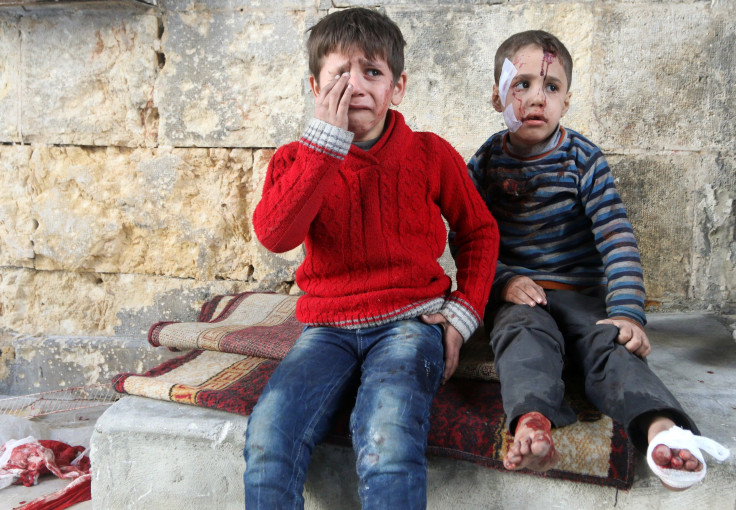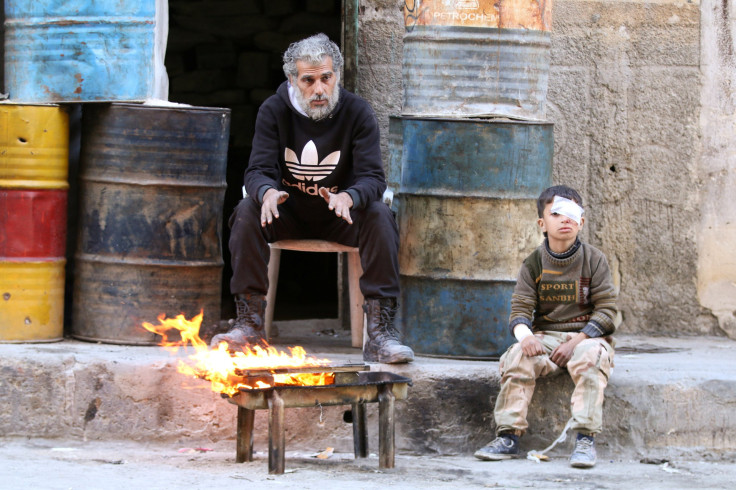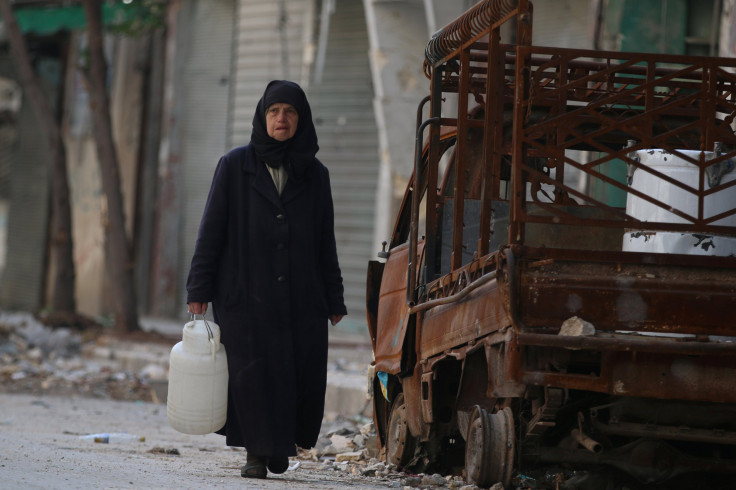How To Donate Money And Aid To Aleppo, Syria: Humanitarian Organizations Delivering Food And Supplies To City

Reports and video from the last remaining journalists on the ground in Aleppo, the largest city in Syria, paint a harrowing picture: food scarcity, schools and hospitals being targeted by airstrikes and families left with no way out of the besieged war-zone. As photos of distraught children and the crumbling historic city go viral across the web this week, people around the world can make a difference by donating to a multitude of organizations committed to providing Syrians humanitarian aid.
The International Rescue Committee provides emergency medical supplies and resources to Aleppo, as well as trauma counseling and safe spaces for women and girls suffering because of the crisis. The World Food Program supplies food to nearly 4 million Syrians throughout the entire country each month. Doctors without Borders continues to set up health centers and hospitals across the region, sending aid and medicine to dangerous, inaccessible parts of the city. Islamic Relief USA is among the crowd of NGOs and international groups preparing to enter Aleppo from the Turkey border with resources for a harsh upcoming winter season.

"The needs far exceed what we have in capacity," Islamic Relief USA's Omar Sawan told International Business Times.
Even with available aid located just across the nearby Turkish border, volunteers are unable to enter Aleppo as bombardments have escalated since last week. "We’re hoping to deliver $2 million in aid for a winterization campaign inside Syria," Sawan continued. "We’ve ear-marked the money for it, but unfortunately because of the severity of the bombings in Aleppo, it’s been very difficult for international organizations to deliver any aid to Syria. The United Nations are investigating an aid convoy hit by an airstrike two months ago, and with the targeting of aid workers being so flagrant, everyone has been cautious."

The Syrian conflict began in 2011 after a series of violent anti-government protests escalated into a full-scale civil war. President Bashar al-Assad and his regime are accused of war crimes across the nation, as more than 250,000 Syrian citizens have been killed and over 11 million have been displaced since the war began just five years ago.
Russia has had a key role in the bombardment of airstrikes and reported use of chemical weapons across the region, and has significantly ramped up what it claims to be a mission to defeat the Islamic State in Syria. The day after Russian President Vladimir Putin called President-Elect Donald Trump to congratualte him on his Election Day victory and discuss the Syrian conflict, eastern and northern Aleppo saw Sunday one of the largest bombing campaigns in recent history.
International audiences, who are watching these developments unfold online, typically only witness the tragedies and aftermath of such extreme violence. Sydney Richardson, a 27-year-old digital associate producer in New York City, shared her frustration in a Facebook post Monday afternoon over news organizations failing to provide information on humanitarian efforts. She asked for ways to help after being unable to find any mainstream media reports on how everyday people around the world can help remedy the conflict.
"You’re watching people’s lives be destroyed for what appears to be nothing more than clicks and impressions," said Richardson, who described feeling hopeless after seeing countless videos from Aleppo lacking information for humanitarian aid. "At the same time, the amount of shares and visibility could be so great if we included information for organizations and donation links."
Organizations working to aid Aleppo said donations will help temporarily relieve afflicted areas on the city. They also called on international audiences to Syria’s civil war to take their action a step further.
"Solutions have to be political," Sawan continued. "If people were to urge their governments to make serious attempts at resolving these problems, it would be more effective to providing relief to Syrians. It’s a complex situation in Aleppo that’s still unfolding, and threatens to expand. Reaching out to local politicians and asking them to support political resolutions to the conflict would be the best way to help Syrians in this moment."
© Copyright IBTimes 2024. All rights reserved.






















